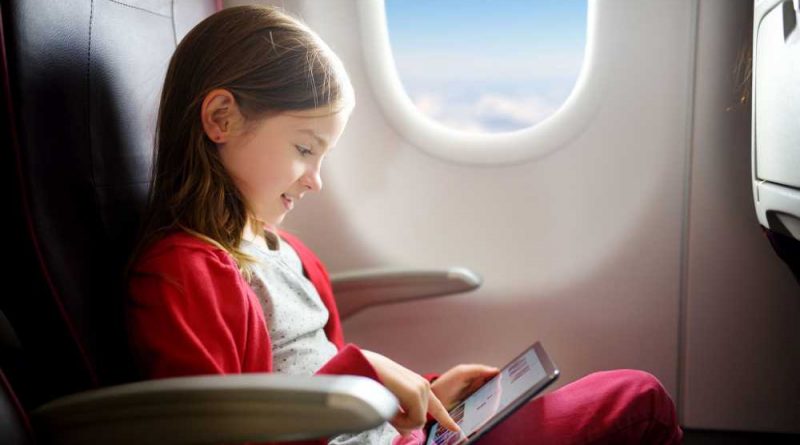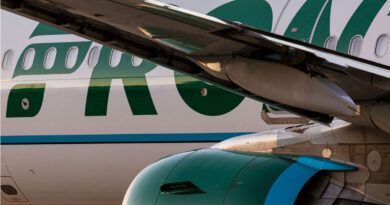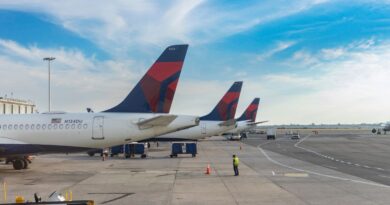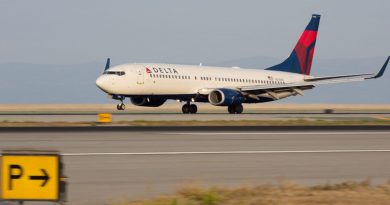DOT takes another look at how families are split on airplanes
As airlines have increasingly charged extra fees for advanced seat assignments and seat selections in recent years, it has become more challenging for families to ensure seats together without paying extra.
The Department of Transportation, responding to a directive from Congress to examine the matter, two years ago concluded that U.S. airlines don’t need to be required to make sure children 13 and under can sit next to a family member at no additional cost. A review of complaints the DOT had received over the prior two years revealed that just one in 200 of them related to family seating, the department explained.
Now, however, the Biden administration’s DOT is facing pressure from consumer advocates to reconsider the matter. And early signs suggest that the advocates are making headway.
“The department is looking into this matter again to determine what other action(s) should be taken,” a DOT spokeswoman told Travel Weekly.
For families, the challenge of obtaining seats together is especially complicated on basic economy tickets, or with standard seating products on ultralow-cost carriers (ULCCs) such as Spirit and Allegiant. ULCCs charge extra for any seat assignment prior to check-in, unless the customer has already paid for a more expensive bundled fare product. Either way, that means higher costs for families determined to ensure they will sit together.
Other airline stories
- Popularity of private flying hits new heights
- White House unveils plan to reduce aviation emissions
- Frontier flies A319 plane for the final time
___
Traditional carriers, meanwhile, either don’t allow seat assignments prior to check-in for basic economy tickets, or only offer early seat selections with a fee. Families who want assurance of sitting together therefore must either purchase a more expensive economy seat or pay for the seat selection.
Families who choose not to reserve seat assignments at booking as well those unable to find available adjacent seats, even for a fee, aren’t necessarily out of luck. On their websites, airlines tell families to check in to their flights as soon as they are eligible and to arrive at the airport early. Gate agents will try to seat families together. If that fails, flight attendants will do the same.
“U.S. airlines work to accommodate customers traveling together, especially those traveling with children, and will continue to do so,” the trade group Airlines for America said.
Still, airlines stop short of making guarantees.
Consumer advocates go to Pete Buttigieg
That status quo remains unacceptable to consumer advocates. In 2019, Bill McGee, the aviation advisor for Consumer Reports, reviewed all 136 complaints related to family seating that the DOT received between March 2016 and November 2018. Twelve of the cases involved children age 3 and younger. In three cases the child was autistic.
McGee argues that the severity of such cases, rather than the frequency, are what the DOT should have considered before concluding that carriers don’t need to be subject to regulatory requirements related to seating families together.
In late July, McGee and other consumer advocates pressed their case directly in a meeting with DOT secretary Pete Buttigieg. Both McGee and Charlie Leocha, head of the consumer group Travelers United, say they were encouraged by Buttigieg’s interest.
“I’d say he’s really on our side,” Leocha said. “However, he still has to go through his worker bees. He made no commitments whatsoever, just that he’d look at it.”
Meanwhile, consumer advocates aren’t the only ones who say airlines need to do more to put families at ease. A study released in June by the firm IdeaWorks, which consults airlines on how to boost ancillary revenue, noted the rapid embrace of seat assignment fees by global, full-service carriers in recent years.
IdeaWorks president Jay Sorensen also pointed out that charging for seat assignments can cause consumer confusion, especially as it relates to family travel. Often, he added, airlines do a poor job of disclosing their rules for paid seat assignments, including cancellation and refund policies.
“I am an advocate for ancillary revenue, but it needs to be ancillary revenue done smartly and correctly,” Sorensen said. “Too often, in their rush for ancillary revenue, airlines are remiss in dotting every I and crossing every T.”
IdeaWorks cited the practices of Ryanair and Singapore Airlines as examples of how airlines can accrue seat assignment revenue while also being sensitive to families. Customers booking Singapore’s Economy Lite and Economy Value seats normally pay a seat selection fee. However, the booking engine recognizes when a traveler is booking to fly with a child and automatically enables that customer to choose complimentary economy seats.
On Ryanair’s website, customers making a booking that includes a child are automatically informed that up to four children get free seat selections as long as an adult buys a reserved seat for the nominal fee of between $5 and $8.
Back in the U.S., family-focused travel advisors said they are careful to make sure clients understand the pitfalls of purchasing the lowest-priced seats. But even when those clients pay to select seats during booking, challenging situations can occur.
For example, Jessica Griscavage, owner of Runway Travel, an affiliate of McCabe World Travel in McLean, Va., currently has clients with a seating problem on United, she said.
The family of four, which includes two young children, had four seats booked together for travel during the upcoming winter holidays until the airline made an aircraft change, Griscavage said. But when she attempted to find them adjacent seats on the new aircraft, the only ones available for selection were in exit rows, where the children aren’t allowed to sit.
Griscavage said she’s monitoring the flight daily to see if more seats open up. She’s hoping the family won’t have to resort to waiting until they get to the airport to try to resolve the situation.
“Not everybody is an easygoing traveler,” Griscavage said. “This is a big stressor for a lot of people.”
Source: Read Full Article



